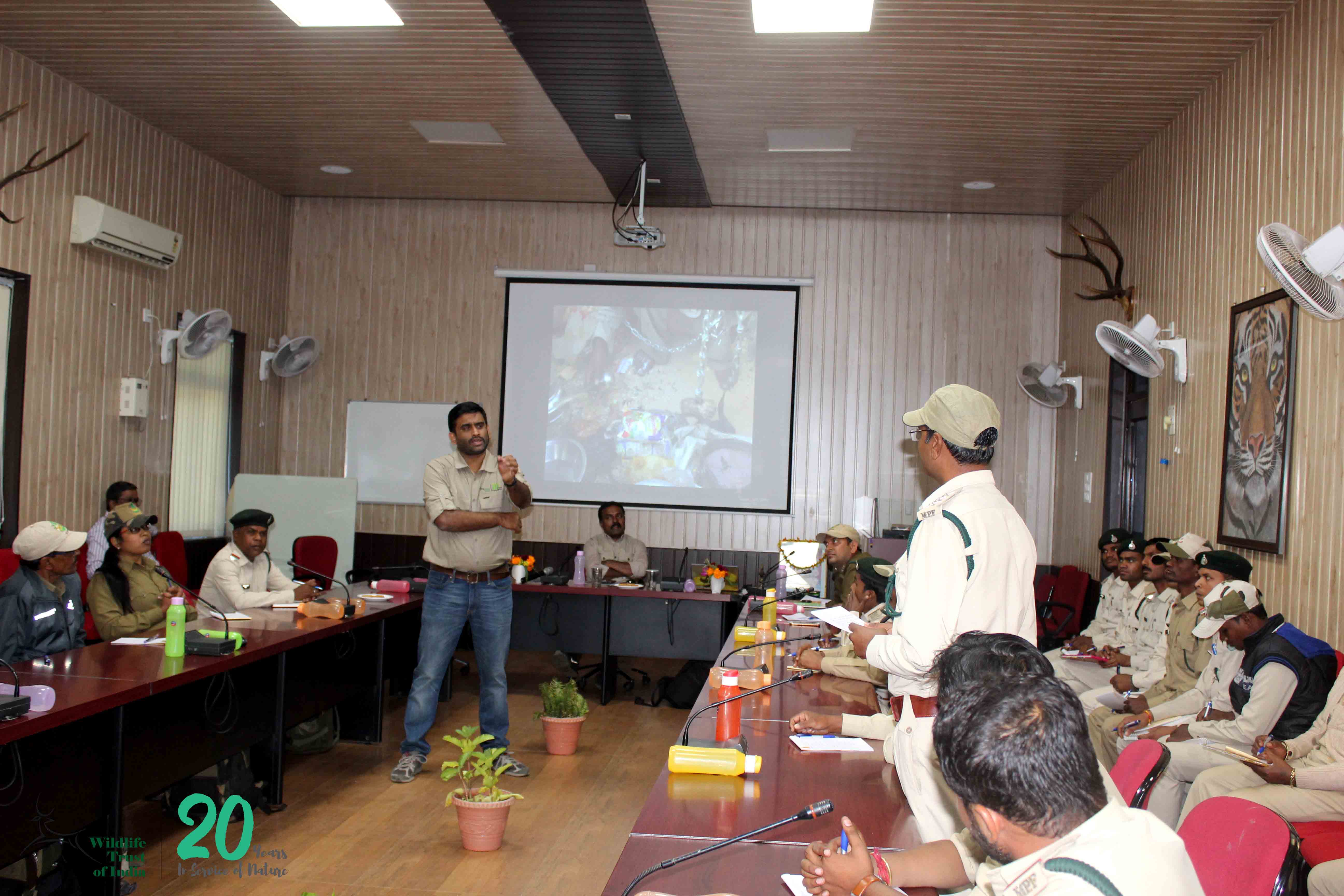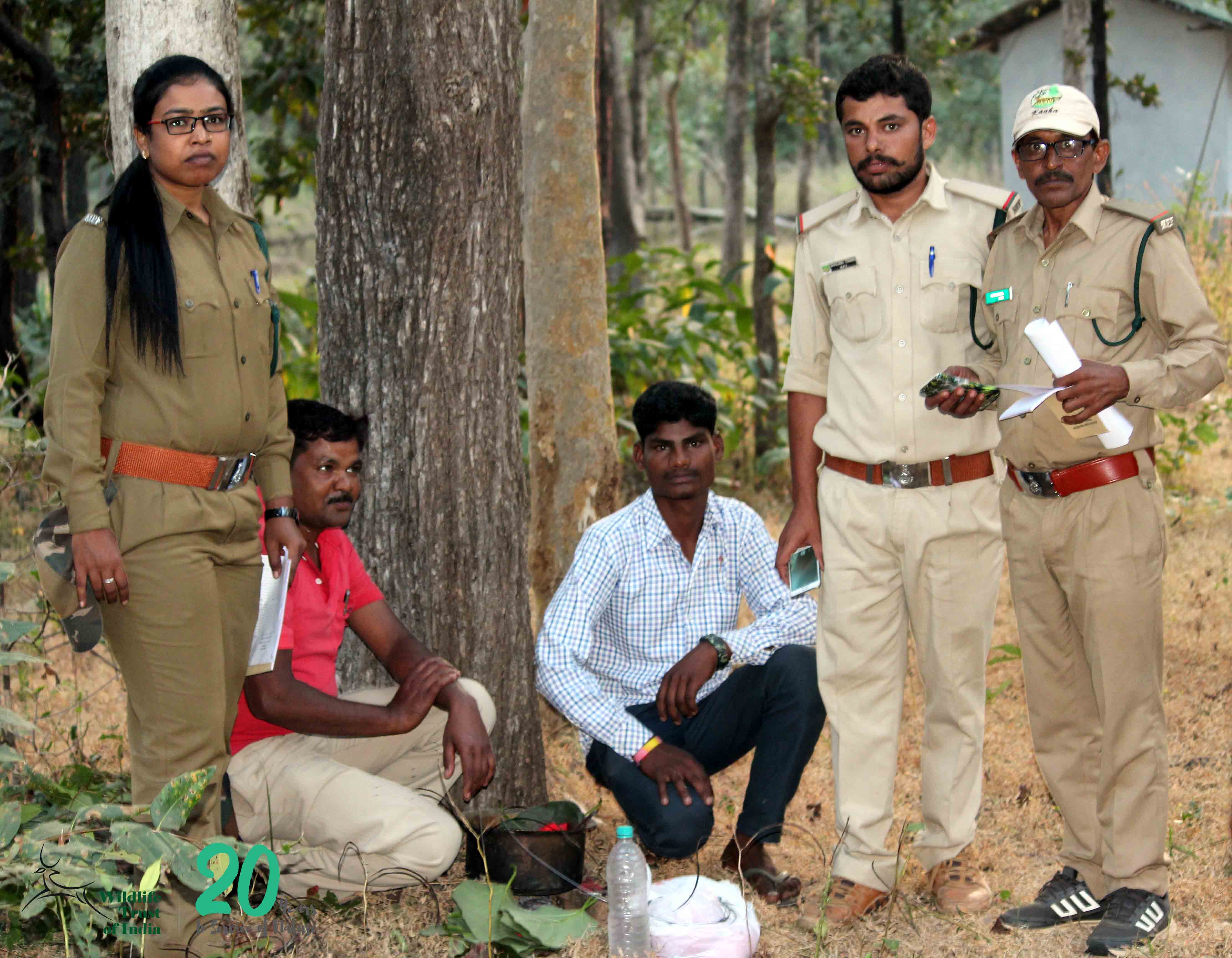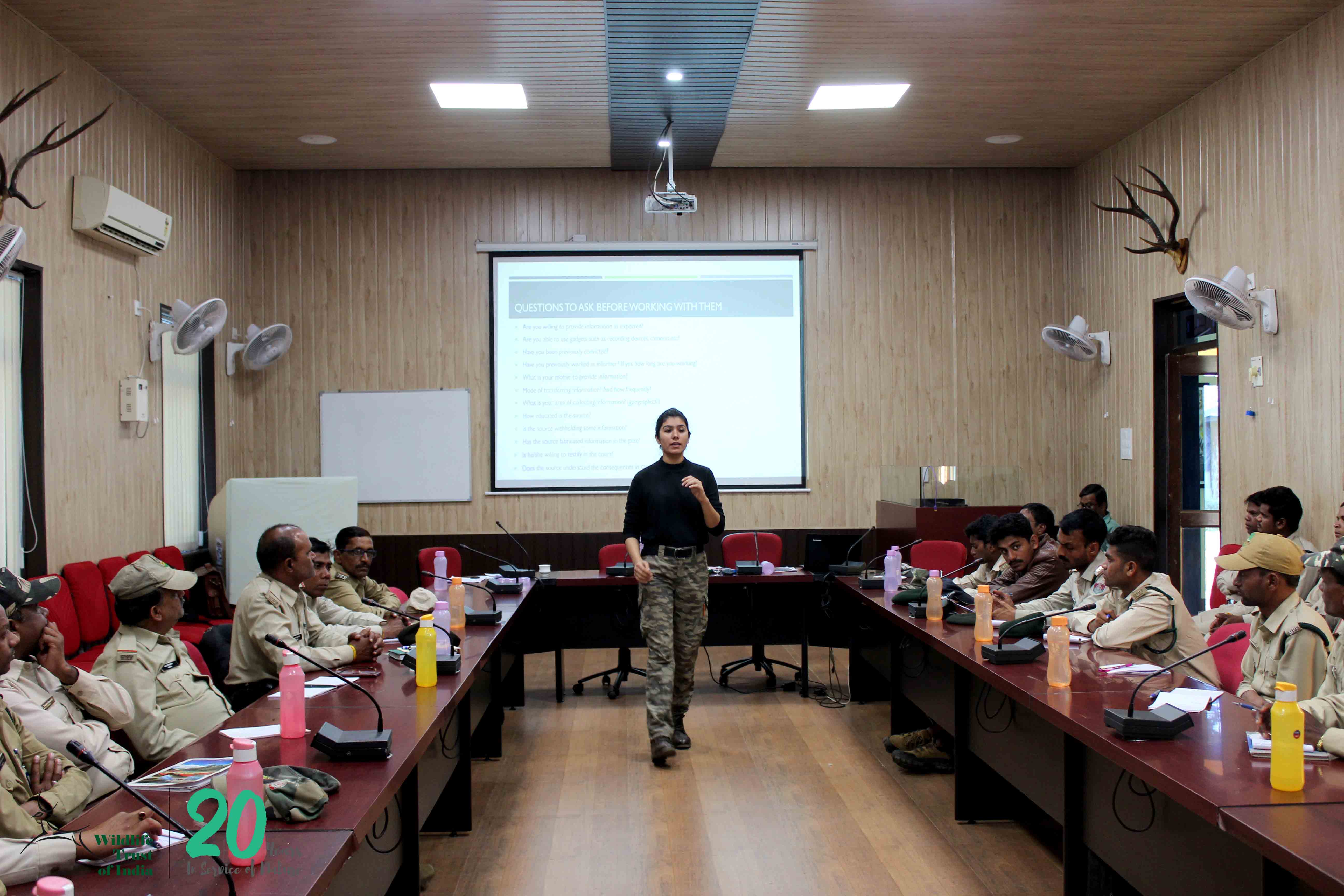Kanha National Park, Madhya Pradesh, November 17-19th, 2018- As a part of the continuing efforts under its Van Rakshak Project to train, equip and boost the morale of frontline forest staff across the country, Wildlife Trust of India (WTI), in partnership with Madhya Pradesh Forest Department and with support from IFAW, conducted a training programme for the new staff in Khatia Eco Centre from November 17-19, 2018.

The programme was inaugurated by DD Kanha, Anjana Tirki and attended by 34 frontline personnel from across 10 ranges of Kanha National Park. The curriculum included legal and biological aspects of the Wild Life (Protection) Act, 1972, as well as wildlife crime prevention components; such as basics of wildlife biology, tracks and signs, anti-poaching patrolling techniques, intelligence gathering, search and seizure, interrogation, crime scene investigation and the preparation of Preliminary Offence Reports. A dedicated field day ensured that trainees received a hands-on exposure of investigative aspects of the training. Trainees were also briefed on relevant provisions of the Indian Evidence Act, Indian Penal Code, Code of Criminal Proceedings, and powers conferred on them therein for the prosecution of wildlife crimes.
The purpose of the training was to ensure that forest staff received both wide angle and specific perspectives on investigative and legal aspects of wildlife crime, with close attention paid to proper case documentation and appropriate legal procedures. Trainees were evaluated on the basis of a test conducted before and after the programme.

“As these are new staff posted for the first time in the field, it is their learning phase in all aspects; whether it is walking in the forest, identifying wildlife and its presence around or investigating a case. It is very important for them to learn the first lessons of the law enforcement and legal formalities at this stage, as it will help them to undertake their duties better and also will give them an excellent sense of honour and pride in their role as frontline law enforcement officials”, said Anjana Tirki, DD Kanha NP.
“The era of technological advancement with improved access to the internet has opened up new opportunities and threats to our wildlife crime control operations. Of late it has been observed that wildlife traffickers are not lagging behind in making use of the technologies to facilitate their trade. It’s high time that we train and equip our staff to deal with these issues and continue the training progress to include new modules every time as per the need assessment from the department and the recent crime trends”, said Prerna Panwar, Trainer and Assistant Manager, Wildlife Crime Control Division, WTI.
Since 2013, IFAW-WTI is providing legal assistance to Kanha National Park by engaging a consultant lawyer, Yash Kumar Soni, a trial court lawyer. He visits Kanha, Pench and Bandhavgarh parks every month for two days to follow up with cases registered under the Act. “The overall quality of the documentation is improved very much now and some range officers are now excellent in the documentation, which does not require any inputs from my side. A case documented well is the work half done as the suspects do not get easy bails to begin with. Now the results are already coming in the form of bail rejections and convictions, which is very encouraging”, said advocate Soni, who is a WTI trainer and legal consultant.

WTI has been conducting these Wildlife Crime Prevention Training programmes under its Van Rakshak Project (VRP) since 2001. Over 17011 frontline forest personnel have been trained in over 138 protected areas across 14 states. VRP follows a multi-pronged strategy with four thrust areas abbreviated as TEAM – Training, Equipping, Awareness and Morale Boosting, to build capacity and strengthen spirits of personnel in tough field conditions.